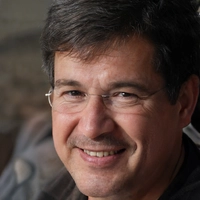Peeking Behind the Curtain: The Intriguing World of Environmental Science and Biology
Alright, let's get straight to it. As Caspian, your friendly neighborhood blogger, I've received a lot of messages asking the big question: should you study environmental science or biology? Well, that's a loaded question if I've ever heard one! I mean, both fields of study are incredibly rich and diverse, offering career opportunities you could only dream of. So, sit tight and prepare yourself for a deep dive into the worlds of environmental science and biology!
Pinning Down the Difference: Environmental Science vs Biology
Alright, let's start this rodeo by bringing out the big guns. Environmental science and Biology, while intrinsically linked, actually navigate different waters. A biologist would say it's like comparing cheetahs to leopards – they're similar, but subtly unique creatures. You see, Biology is the study of life at all its levels, from the tiniest organisms to complex ecosystems. Digging into my memory, in my biology classes, we poked at every element of the biological world to understand how it works, why it works, and how it might apply to our own lives and endeavors. Suffice to say, biology is a vast and incredibly dynamic field.
Environmental science, on the other hand, is a more specific point of interest. This field of study focuses on the understanding and management of our environment, including both physical and biological phenomena. As an environmental science student, you would study how the environment operates and interacts with living organisms. In fact, it's like being on an epic quest to discover how we can live sustainably on this blue-green orb we call home. Interestingly, my biology knowledge served me well when I took an environmental science course – understanding the biological undercurrents of our world is a powerful tool in deciphering environmental puzzles.
Unraveling the Genetics Code: A Life in Biology
Biology, my dear friends, is the scientific story of life. Everywhere you look in nature, biology is at play – from the majestic dance of predator and prey to the microscopic battle of pathogens and the immune system. It's the study of life, and by extension, the study of ourselves. If you're curious about how our bodies function, why animals behave the way they do, or how diseases spread, biology might just be your happy place!
As a biology student myself, I quickly fell in love with the intricacies of the natural world. There were so many rabbit holes to explore – one moment I was learning about the complex process of photosynthesis, and the next, I was standing in the lab, examining bacteria under a microscope. You see, biology opens doors you didn’t even know existed! It is one of the most beautiful things about the field!
Joining the Green Crusade: A Foray into Environmental Science
If biology is the study of life, then environmental science is the study of where life happens. It's about understanding the complex web of connections that weave together our planet's ecosystems. As a student of environmental science, you'll dig into earth structure, water cycles, atmospheric science, and dig into the effects of pollution and climate change. You'll also learn how to restore damaged ecosystems and promote sustainability. It's truly a holistic review of our beautiful planet!
I remember my brief flirtation with this field of study – there was something beautifully humbling about learning the strides our planet makes to keep us alive and kicking. There's also a sense of responsibility that comes with studying environmental science – you're learning about our impact on the world and how we can mitigate it. To me, studying environmental science is like becoming a steward of the earth. We are, after all, just visitors and we should tread lightly.
Mapping Out Your Career: Where Will Biology Take You?
If you're dreaming of donning a white lab coat and peering through a microscope, then pursuing a career in biology might just be your perfect match. But don't get boxed in! Careers in biology go way beyond labs and petri dishes. You might end up studying animal behavior in a rainforest, developing a groundbreaking treatment for a deadly disease, or teaching future generations about the wonders of the biological world. The sky's the limit!
Career Compass: Where Will Environmental Science Lead You?
Earnestly, being an environmental scientist is a badge of honor. Your work could take you to some of the world's most awe-inspiring habitats (hello, rainforests and deep-sea dives!). It's as much about doing good in the world as it is about having a fulfilling career. You could be responsible for regulating pollution, managing protected lands, or finding innovative solutions to environmental problems. It’s about taking up the mantle of preserving our environment for future generations.
Making the Right Choice: The Final Verdict
The choice between studying environmental science or biology is an intensely personal one. It depends on what you want out of your education and your career. If you're fascinated by life in all its complexities, have a penchant for exploration, and are ready to get up close and personal with every imaginable critter, biology might call to you. On the other hand, if you're awestruck by nature and driven by the idea of preserving the planet, environmental science could be your calling. So, it’s high time to listen to your instinct!
Take It from Me: A Personal Tale
Alright, story time. When I had to make this choice, I wasn't sure where to go. Biology fascinated me with its intricate woven tapestry of life. Yet, environmental science beckoned me with its promise of deeper understanding and stewardship of our planet. After much thought, I decided to major in biology and minor in environmental science. This decision allowed me to sate my thirst for knowledge on both fronts and I cannot recommend it highly enough to anyone struggling with the same choice!
So there you have it, it wasn’t an easy decision, but it’s one I don’t regret. After all, who says you can’t have your cake and eat it too? To sum it up, keep your options open and always follow your passion, because there’s no wrong path when it comes to expanding your knowledge and choosing your future career.

